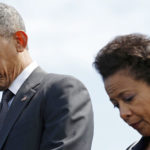KANSAS CITY, Mo. (ABP) — Ads airing on Christian and mainstream radio stations in several states are attempting to frame health care as a moral issue.
Sponsored by a broad coalition of faith-based groups led by PICO National Network, the ads urge members of Congress in swing districts and states to move forward with legislation making health care affordable for all Americans. Organizers said they hoped lawmakers would hear the ads — and from constituents — while in their home districts for Congress' weeklong Memorial Day recess.
"It seems like almost every day someone else in my community is worried they won't be able to keep paying for their family's health care," Wallace Hartsfield Sr., pastor emeritus of Metropolitan Missionary Baptist Church in Kansas City, Mo., said in the version of the ad airing in Missouri.
"Missourians are working harder than ever, but health care is becoming less and less affordable," Hartsfield said. "It's just not right. Every person, created in the image of God, is of limitless value."
Hartsfield, an adjunct faculty member at Central Baptist Theological Seminary in Shawnee, Kan., was part of the recent Baptist Border Crossing in Liberty, Mo., one of four regional meetings being held this year as part of a New Baptist Covenant movement launched in 2008.
The brainchild of former President Jimmy Carter, that movement aims to unify various Baptist groups in North America traditionally divided by race and doctrine around common values including concern for the poor.
"We believe that health care is a moral issue," Rayfield Burns, minister of outreach and missions at Metropolitan Missionary Baptist Church, told reporters in a recent conference call announcing the ad campaign. "It is an issue that should be of great concern to those that sit in high places in our government."
"Jesus was concerned about more than just the souls of men and women," Burns said. "He was concerned about the whole man. We should be concerned as well."
Also supporting the campaign is Steve Beckham, pastor of First Little Rock Baptist Church in Baton Rouge, La., who reads the script targeting listeners in Louisiana. Other ads ran in Arkansas, Colorado, Indiana and Nebraska, all viewed as states key to determining the fate of health-care reform.
Sign up for our weekly edition and get all our headlines in your inbox on Thursdays
The ads are paid for by Faithful America, an online community of progressive Christians motivated to public policy by faith. Formerly hosted by the National Council of Churches, in 2007 it moved to Faith in Public Life, a group of faith leaders formed to counter partisanship of the Religious Right. Organizers would not say how much they paid for the radio ads, saying they don't usually reveal their strategies in that much detail.
Leading the effort is PICO, an acronym for People Improving Communities through Organizing, a national network of faith-based community organizations founded in 1972. Other sponsors include Sojourners, Gamaliel Foundation and Catholics in Alliance for the Common Good. A press release called it an unprecedented degree of collaboration between faith-based community-organizing networks and national religious groups.
The radio ads are part of a larger campaign including grassroots events, forums and meetings. Hundreds of clergy from various denominations have pledged to preach on health-care reform in June and July and signatures are being collected for a National Clergy Letter supporting health-care reform from a faith perspective.
–Bob Allen is senior writer for Associated Baptist Press.














We seek to connect God’s story and God’s people around the world. To learn more about God’s story, click here.
Send comments and feedback to Eric Black, our editor. For comments to be published, please specify “letter to the editor.” Maximum length for publication is 300 words.